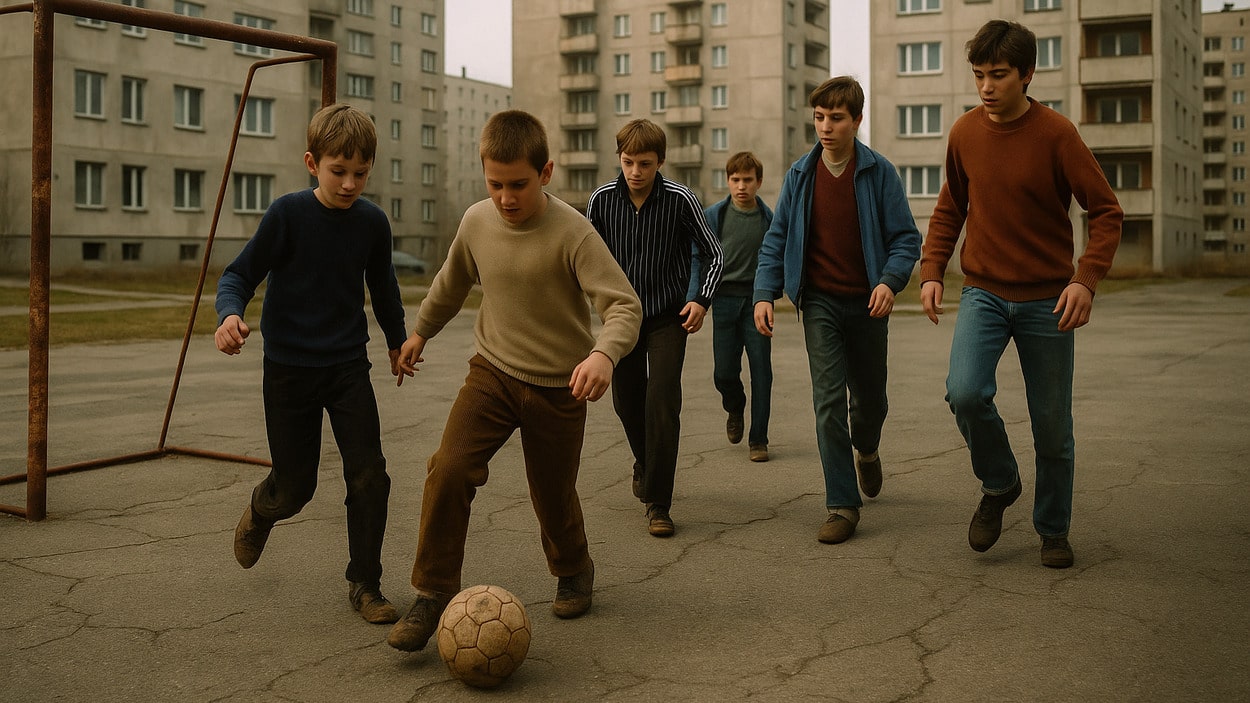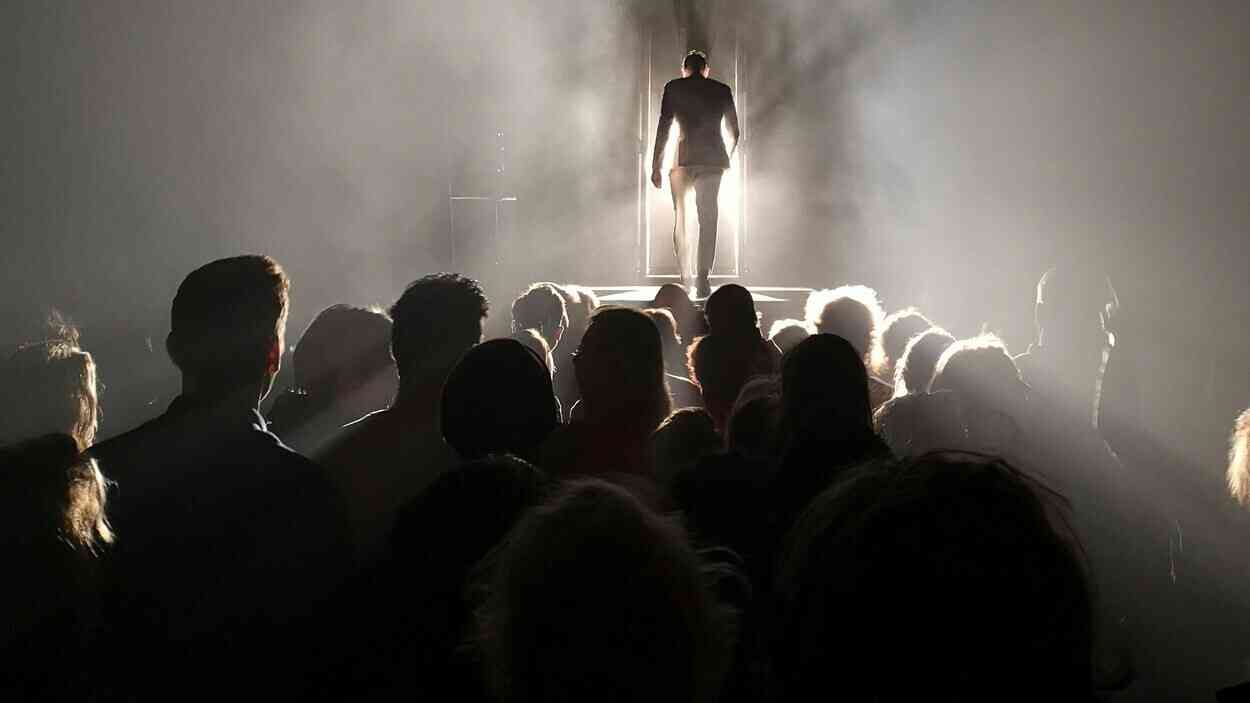Science
One Night, One Flash, and a Massive Discovery: A Historic Milestone in Astronomy
08 January 2026

We lived like predators—in a neighborhood pack governed by its own rules. Our childhood in Communist-era Poland (PRL) taught survival, not sensitivity. But what happened to our world when a generation of tough, resilient people raised children who can't handle even basic life challenges? This clash between tough childhood vs soft parenting is a defining generational issue.
I absolutely love the Monty Python group, both their sketches and their feature films. They boast an extraordinary sense of humor, brilliant acting, and dazzling scripts and dialogue. Monty Python earned its immortality many times over. I am not even referring to the phenomenal, high-budget masterpieces like Life of Brian or Monty Python and the Holy Grail, because even their short scenes and sketches have become legendary.
In fact, everyone who did not grow up under a lunar rock knows the dead parrot sketch (“this parrot is just resting”), and the phrase “we lived at the bottom of the lake” is likely familiar to most people.
Though probably only a fraction of them know who started that bizarre list, which serves to detail how tough the old days of childhood were and to compete with friends over who had it worse. On YouTube, this sketch is known as “The Four Yorkshiremen.”
Later, and certainly inspired by that film, a copy-pasta spread, beginning with the words “There were eleven of us, and we lived in a lake.” However, another quote resonates especially deeply with me, commonly shared online to describe the X/Boomer generation:
“I don’t mess with anyone over 42. They are built differently. Their families formally trained them in something before they turned two. They had house keys by age five, could prepare full meals, and were nearly self-sufficient by age nine. Every summer day, they left home at dawn and didn’t return until dusk, surviving the whole day on water from garden hoses and and, with luck, a sandwich in case their parents went shopping. They spent three-quarters of their lives alone; parents checked on them perhaps twice a month. Most of them avoided at least one attempted kidnapping and know fifteen different ways to remove bloodstains from clothes. This is the last truly dangerous generation.”
I particularly appreciate this text because it concerns my generation, and it quite accurately depicts our struggles with life’s realities. Of course, as with all kinds of satirical copy-pastas, it contains some exaggeration. But is it really that much?
I grew up on post-war, communal housing blocks, so the street raised me. I went out to the courtyard immediately after finishing school and did not return until it was dark. No one monitored what I was doing, who I was doing it with, or where.
Sometimes I played soccer nicely, rode skates or bikes, but other times we went to the railway tracks, to the clay pits, climbed tall trees, slid on frozen ponds, fought with fists and sticks, or threw frozen snowballs at each other.
We built bonfires so large the fire department came. We bled from cuts and lacerations; more than one of us drove a nail through a hand or foot; we walked onto active construction sites and jumped onto piles of sand, playing among heaps of concrete slabs. No one ever complained!
If my child did half the things I did at their age today, I think I would suffer a heart attack.
A fellow Twitter user from my generation beautifully described a similar situation, comparing how people cared for children then versus now (I’m quoting from memory):
“My son asks if he can go to a friend’s house to play console games. I agree and instruct him to call and check in every two hours. I remember when I used to leave the house in the morning and shout: ‘Mom, I’m going to the clay pits.’ Mom would just answer, ‘Be back before dark.'” There truly is a difference, isn’t there?“
What exactly happened so that we, a generation of tough individuals who lived in a neighborhood pack governed by its own rules (like wild predators on the savanna), raised a generation of delicate ones (or snowflakes) who faint at the sight of a drop of blood and cannot cope with the basic rules of survival?
I believe the answer is complex, but the first thing that comes to mind is the disappearance of the courtyard or neighborhood as a gathering place and a playground for the children’s community. That is where active recreation, social bonds, and life experience were born. Simply put: that is where we grew up and toughened up. So, what caused the end of this neighborhood era?
In short, it came from parental fear—and not imagined fear, but unfortunately, one that was well-founded. The first type of fear was the fear of predators. I truly do not recall fearing adults during my childhood years.
Yes, parents warned us not to take anything from strangers or get into strange cars. However, the feeling of being threatened was entirely foreign to us. Adults were either indifferent to us or annoying because they interfered with one game or another. But occasionally, we even asked strange adults for help or mediation in a dispute. We had no reason whatsoever to fear them. That specific fear of the adult who might cause harm is, unfortunately, a sign of new, bad times.
Furthermore, a fear of violence from older children or teenagers emerged. I do not recall fearing teenagers during the PRL era, nor being terrorized, beaten, or robbed by them. Yet, in my adult life, when my friends had their own children, I remember this being a widespread concern: fear of violence from older and stronger kids.
The Warsaw of my time and my area (first Ochota, then the vicinity of Wilanów) was only partially civilized. In that Warsaw, we still found countless places that were wild, dangerous, and isolated. Fields, ponds, allotment gardens—all were within easy reach. The same was true for numerous ongoing construction sites, which were neither secured nor fenced in a way that prevented us from accessing them. Today, most cities feel entirely domesticated and civilized.
Moreover, you can criticize the urban planning of the Communist period, but there was a greater effort to provide public space for citizens than there is today. We did not live crammed like rats in cages, block against block. We had expansive spaces between the buildings. And on those spaces were large asphalt courtyards that we transformed into bike or roller-skate tracks, soccer fields, ice rinks, or tennis courts. The neighborhoods were also not gated, which meant peers from other areas could easily visit us.
Neighborhood life and organizing our own, often imaginative, peer group recreation also stemmed from a lack of other available attractions. The Internet did not exist, television was essentially absent, and entertainment was sparse and rarely changed. Therefore, we were left with either reading books or engaging in shared physical activities. We were truly hardened and did not fuss over trifles. If someone fell and scraped their arm or leg, they just picked the gravel and sand out of the wound and kept playing. Today, an ambulance would likely rush them to the hospital with sirens blaring!
And allow me to conclude this text about the glorious past with another fragment of the copy-pasta:
“In the summer, we climbed the roofs of skyscrapers; no adults watched us. We jumped. But no one smashed onto the pavement. Everyone knew how to fly, and no one needed special lessons to learn this art. And no one complained. Bruises and scrapes were a normal occurrence. As were knocked-out teeth, ruptured stomachs, sudden missing eyes, or amateur amputations. The school counselor did not send us to a family psychologist because of it. We also played on construction sites. Sometimes a reinforced slab crushed someone, and sometimes it didn’t. When a nail pierced a foot, the mother cut off the foot and said with a smile, ‘Here, dammit, you have another one, right?’ She didn’t tremble with fear that we would kill ourselves. She knew that someday we would all die anyway. No one complained.“
Yes, my friends, that is exactly how it was!
It’s good to know that Paw-pals Are Forever: Renowned Fantasy Author on the Bond That Heals
Read the original article: Jacek Piekara: Byliśmy pokoleniem wilków. Co zmieniło nasze dzieci?
Science
08 January 2026

Science
08 January 2026


Zmień tryb na ciemny